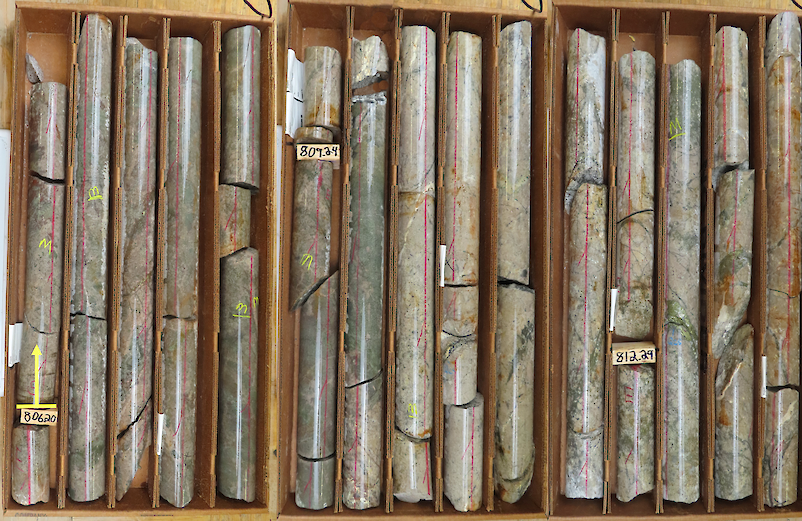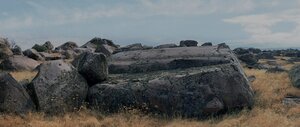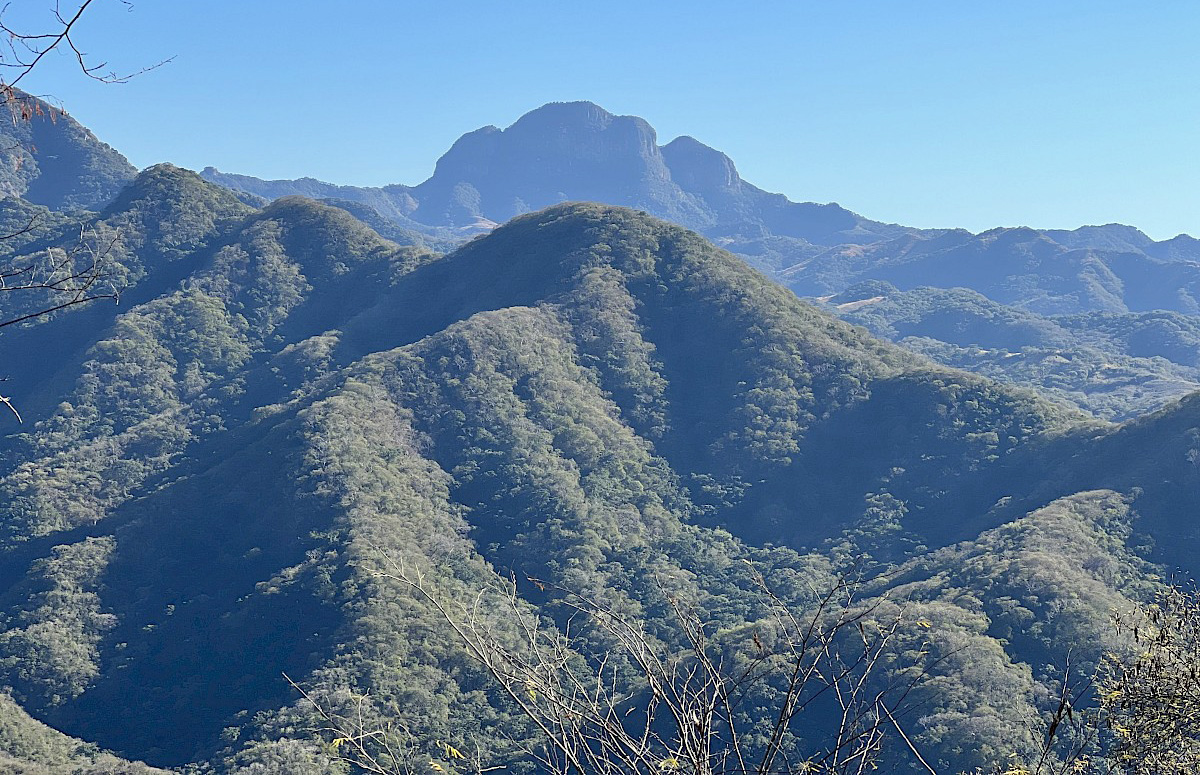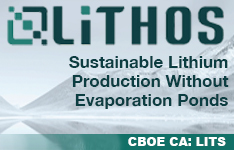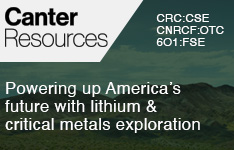TICKERS: , , CHU, GDRRF, RVS, ROXG,
Gold Mining in West Africa Promises Growth: Mark Lackey
Interview
Source: Brian Sylvester of The Gold Report (3/19/12)
 Mark Lackey, chief investment strategist with Pope & Company, sees particular promise among small-cap gold equities in West Africa. Burkina Faso and Mali offer good topography and stable, democratically elected governments with little interest in economic nationalism. Given Lackey's view that gold will float between $1,600 and $1,800/ounce this year, he says in this exclusive Gold Report interview that now might be a good time for investors to look to Africa for upside potential.
Mark Lackey, chief investment strategist with Pope & Company, sees particular promise among small-cap gold equities in West Africa. Burkina Faso and Mali offer good topography and stable, democratically elected governments with little interest in economic nationalism. Given Lackey's view that gold will float between $1,600 and $1,800/ounce this year, he says in this exclusive Gold Report interview that now might be a good time for investors to look to Africa for upside potential.
Mark Lackey: Higher inflation in the Western world would certainly help push gold over $2,000/oz in the next 18 to 24 months. But inflation is not the only factor underlying the price of gold. On the demand side, you have growing demand among the middle class in India and China. On the supply side, we are seeing that companies are not always getting to production as quickly as they anticipate. Given all of these factors, gold could top $2,000/oz even without a significant rise in the rate of inflation.
TGR: China recently lowered its gross domestic product growth forecast for 2012. That's rarely good for commodities. If China's economy sputters, how hard could gold be hit?
ML: The 7.5% number is actually China's target rate. Looking back over the last 10 years, China has generally targeted its growth between 7% and 8%, and in almost every year, actual growth exceeded the target. In 2007, for example, the target was 8% and actual growth was 14%—an unusually big divergence. We think China will grow in the 8.5–9% range.
As to whether a weaker China would be good for commodities or gold, there are a few scenarios that have China growing only 4%. Clearly, that would have a negative impact on the price of commodities and the price of gold. But we do not believe that is a very likely scenario.
TGR: Where do you expect gold to trade this year?
ML: We put the low end around $1,600/oz and the upper end around $1,800/oz. We look at a trading range based upon a weekly average, but we see the price trending up as the year goes on.
TGR: You are a very seasoned observer of up and down markets with 30 years of experience. What are your observations on the gold market?
ML: Increasingly, gold is reacting to daily news more than other commodities. Changes in the European debt situation, a statement from Federal Reserve Chairman Ben Bernanke that differs from what the markets were anticipating, or numbers out of China and India that are stronger or weaker than expected—all this tends to move the gold market more on a daily basis than it did in the past.
We have also noticed greater strength from India and China as their middle classes grow. On the supply side, we see more economic nationalism. Some countries want a bigger slice of the pie. The result is often delays in getting gold mining projects into production.
TGR: Is economic nationalism here to stay?
ML: We saw a report the other day that listed 25 countries that the authors felt had become more nationalistic. I think economic nationalism lines up with a couple of things. One, some countries look at higher commodity prices and feel they should get a larger part of the revenues associated with these higher commodity prices. Two, in some countries you have opposition from environmentalists or the people who live nearby. I think this opposition will continue to rise in some parts of the world.
TGR: Will it be more prevalent in established jurisdictions or jurisdictions new to mining?
ML: One would anticipate more issues in the newer jurisdictions, but if you look around the world, even getting permits in parts of the U.S. is extremely difficult. Some states are very easy; others are quite difficult. Countries change over time. It has become easier to do business in some countries in the Americas. In others, political problems have created more difficult business conditions. The same is true in Africa.
Stability is in the eye of the beholder. You constantly have to stay on top of how countries and their regimes can change.
TGR: In late February, gold tumbled more than $100/oz in one day's trading after Fed Chairman Ben Bernanke dismissed the notion of a third round of quantitative easing. Should gold investors expect more one-day tumbles or price spikes for the foreseeable future?
ML: I would not consider that $100/oz move typical; it was a somewhat overblown reaction. However, there is more volatility in the commodity markets and in the markets in general than in the last 5 or 10 years. Investors will have to learn to live with that.
TGR: Is volatility driving investors out of the space? And if so, is that a mistake on their part?
ML: I think it depends on the type of investor. If people want no or little volatility, they can gravitate to other sectors. I used to be in the pipeline business, where there is little volatility and limited returns.
In the commodities sector, specifically the gold sector, I try not to look at daily movements. It is just noise. Day traders will react to all the daily events. If you are more of an investor, daily events should not influence your decision making.
We at Pope have a view as to where we think commodities and relative companies are headed. We look out to the next 3, 6 or 12 months, as opposed to reacting to daily events.
Is it a mistake to pull out? For any investor experienced in the mining and commodities sectors over the years, it would be a mistake to pull out. Other people with no experience in the mining sector have to determine their own risk preference and comfort levels.
TGR: The buy-and-hold strategy has changed. Trading in and out is now much more commonplace. Does buy-and-hold still work in the mining space?
ML: I would not necessarily advocate the old buy-and-hold strategy over the course of three to five years. The world changes so much that you have to be on top of all the changes that can occur and what they might mean for your investments.
Having said that, investors can find themselves whipsawed trying to react every day to every piece of news. Try to have a view that gives you a position you can stay with for a period of time such as three to six months. Then, make decisions based on how you now feel about the stock's performance and where the markets are actually going.
TGR: You follow a number of small-cap gold equities, a handful of which have projects in West Africa. Despite their promising gold projects, many investors are wary of the added risk of operating in what are often perceived as unstable countries. Why do you and your colleagues at Pope & Company follow these opportunities in West Africa?
ML: It is a mistake to suggest that all African nations are unstable. Burkina Faso has had a democratically elected government since 1987; Mali since 1991. These two countries perform differently than countries without democratic principles and both countries are pro-mining, which makes it easier to develop mines in these two countries.
We like the stability of Burkina Faso and Mali. We particularly like that they are not on the list of countries where economic nationalism is on the rise. They have recorded low political risk in recent mining surveys compared to the rest of the world. As a consequence, we feel that dealing in Burkina Faso and Mali is superior to many other places in the world.
TGR: Which companies do you follow in Burkina Faso?
ML: One is Roxgold Inc. (ROG:TSX.V). Roxgold is unusual for this part of Burkina Faso, in that its geology is different from pretty well everyone else. It has very high-grade gold and excellent performance in the market. It continues to come up with excellent drilling results that have been reflected by the appreciation in its stock price.
TGR: A year ago, Roxgold was a $0.30/share stock, and is now at around $1.85/share. The project you are talking about is the Yaramoko gold project, which Roxgold used to share with Riverstone Resources Inc. (RVS:TSX.V). What did you think of Roxgold's buy-out deal with Riverstone?
ML: The price was fair; it was a good deal for both sides. Riverstone had a lot of other great projects, and it decided that it would sell out here. Of course, it still owns 14% of Roxgold.
TGR: Roxgold just did a private placement financing for about $25 million. How much cash does the company have?
ML: I think that financing alone tells you how successful Roxgold is. That placement was originally at a lower level and was expanded given the demand. This is a classic case of a company that, while it is in exploration and may not have production, created significant investor demand by doing such an outstanding drilling job.
TGR: Riverstone is in Burkina Faso. Do you follow that company, too?
ML: Yes, and we like Riverstone. It has a mineral resource of 2.7 million ounces (Moz) and climbing. In addition to owning 14% of Roxgold, Riverstone has a 90,000-meter drilling campaign underway.
TGR: That is the Karma project.
ML: That's right. It has a very solid resource, strong management and very good prospects.
TGR: What will Riverstone do with its 14% interest in Roxgold?
ML: That is a good question. Given the rising valuation of Roxgold, Riverstone could sell that ownership to fund itself down the road. Or, it can say: we like what we see here and we are going to maintain our position. It gives Riverstone more flexibility in that there is less potential for share dilution than there would be with many other exploration companies.
TGR: What other companies do you follow in Burkina Faso?
ML: We also like Goldrush Resources Ltd. (GOD:TSX.V). It has a resource estimate and is now doing more infill drilling and updating its resource estimate. Looking at its drilling results over the last year, you see some pretty good results. It is on the exploration side, has a resource and is moving forward. We like its prospects for the next year.
I should also mention Volta Resources Inc. (VTR:TSX). Volta has a 4.2 Moz mineral resource: 3 Moz Measured and Indicated, 1.26 Moz Inferred. Volta is on the same fault system that hosts Bomboré, which has 3.5 Moz, and Essakane, with 6 Moz.
We see this as another Burkina play that, more advanced than others, has a rising resource and significant potential.
TGR: Volta also has projects in Ghana.
ML: Yes, it has some very prospective land situations in Ghana. In the short run, we see the Burkina Faso play as its flagship, although the markets should recognize the potential it has in Ghana.
TGR: What about projects that the market is not giving the respect you believe is warranted because of their location?
ML: We like Mali, where Avion Gold Corp. (AVR:TSX; AVGCF:OTCQX) continues to grow its production. It reached 91,000 ounces (91 Koz) last year and has significant potential to expand its production with its Tabakoto and Kofi projects. It also has the Houndé project in Burkina Faso.
Avion is a bit different from the other companies we have been talking about, in that it is already producing and making money.
TGR: Avion has some good coverage from a number of quality analysts, including Tara Hassan at National Bank Financial, who gives it an Outperform rating. What do you make of that?
ML: As a strategist, I do not put out target prices per se. But Avion is well run. It all comes down to execution. Avion's management has shown that it can execute and do what it says it is going to do.
TGR: Why is its share price lagging at around $1.30/share? Given the dramatic increases in production and the projected increases to 200 Koz this year, the stock could be higher.
ML: Quite frankly, it is lagging along with most of the Toronto Stock Exchange Venture-based stocks. In April 2011, the Venture was at 2,400, today it is at 1,600.
As to Avion specifically, for one thing, people have not paid enough attention to West Africa. I think that will change as more people become involved in the geographic neighborhood. Second, it is a function of people's coming back to the small-cap companies, especially ones like Avion that already has production.
TGR: Regarding its Houndé project in Burkina Faso, in December 2011 Avion announced that its resource had grown to 1.6 Moz. Does its current share price account for that?
ML: It is hard to say whether people are taking the Burkina Faso numbers into account. Some people recognize Avion as a play in Mali, so it could very well be that the market is not taking into account what it has in Burkina Faso.
Frankly, there are a lot of very good companies that do not get the following and respect that they deserve simply because they are in West Africa. We believe that will change in the next couple of years.
TGR: What other West African plays are you following, Mark?
ML: African Gold Group Inc. (AGG:TSX.V) in Mali has the Kobada mineral resource of 1.1 Moz. We like it because drilling has extended the mineralization in the area over about 4 kilometers. One of its top management people was the chief geologist for IAMGOLD Corp. (IMG:TSX; IAG:NYSE), which has had a great run and done extremely well in West Africa.
TGR: African Gold Group is estimated to be a low-cost producer, with projected production around 125 Koz/year.
ML: That's right. It also has a holding in Ghana. We think it has significant potential, given the estimated mineral resource.
The last one I would mention is Channel Resources Ltd. (CHU:TSX.V), a company in its early stages. Its Tanlouka gold project in Burkina Faso is on the same trend as the Volta play at Kiaka and Bomboré and Essakane. Channel Resources is a smaller company in somewhat earlier stages, but it has some very good drilling and will be another interesting player.
TGR: Channel Resources is trading around $0.15/share, clearly at a very early stage.
ML: Yes, and people need to remember that if they invest. The company will release a resource estimate in the near future.
TGR: Any advice on strategies for playing these companies?
ML: It all goes back to risk tolerance and what people feel comfortable with.
What I have tried to communicate here is that West Africa is one of the more stable parts of the world. Economic nationalism is not a problem. The topography is very positive; the projects are not 12,000 or 15,000 feet in the mountains with no infrastructure, no power and no water.
As to how to play these stocks, we tend not to buy positions all at once. We generally take partial positions and stay on top of what is going on. Obviously, we follow the gold market and the gold companies. We watch where their drilling results are going and react accordingly.
TGR: What are you noticing when it comes to financing for these companies? Are there fewer deals than six months or a year ago?
ML: At present there have been more financing deals than six months ago. I would say that, in terms of the ability to finance themselves, these West African companies are in a lot better shape than some companies located in difficult jurisdictions or with metallurgically challenged projects.
TGR: Thanks for your time today, Mark.
Mark Lackey, investment strategist at Pope & Company Limited, has 30 years of experience in energy, mining, central and corporate banking and investment research and strategy. He worked at the Bank of Canada, where he was responsible for U.S. economic forecasting. He was a senior manager of commodities at the Bank of Montreal. He also spent 10 years in the oil industry with Gulf Canada, Chevron Canada and Petro Canada.
Want to read more exclusive Gold Report interviews like this? Sign up for our free e-newsletter, and you'll learn when new articles have been published. To see a list of recent interviews with industry analysts and commentators, visit our Exclusive Interviews page.
DISCLOSURE:
1) Brian Sylvester of The Gold Report conducted this interview. He personally and/or his family own shares of the following companies mentioned in this interview: None.
2) The following companies mentioned in the interview are sponsors of The Gold Report: Roxgold Inc., Avion Gold Corp., African Gold Group Inc. Streetwise Reports does not accept stock in exchange for services.
3) Mark Lackey: I personally and/or my family own shares of the following companies mentioned in this interview: None. I personally and/or my family am paid by the following companies mentioned in this interview: None. I was not paid by Streetwise Reports for participating in this story.



